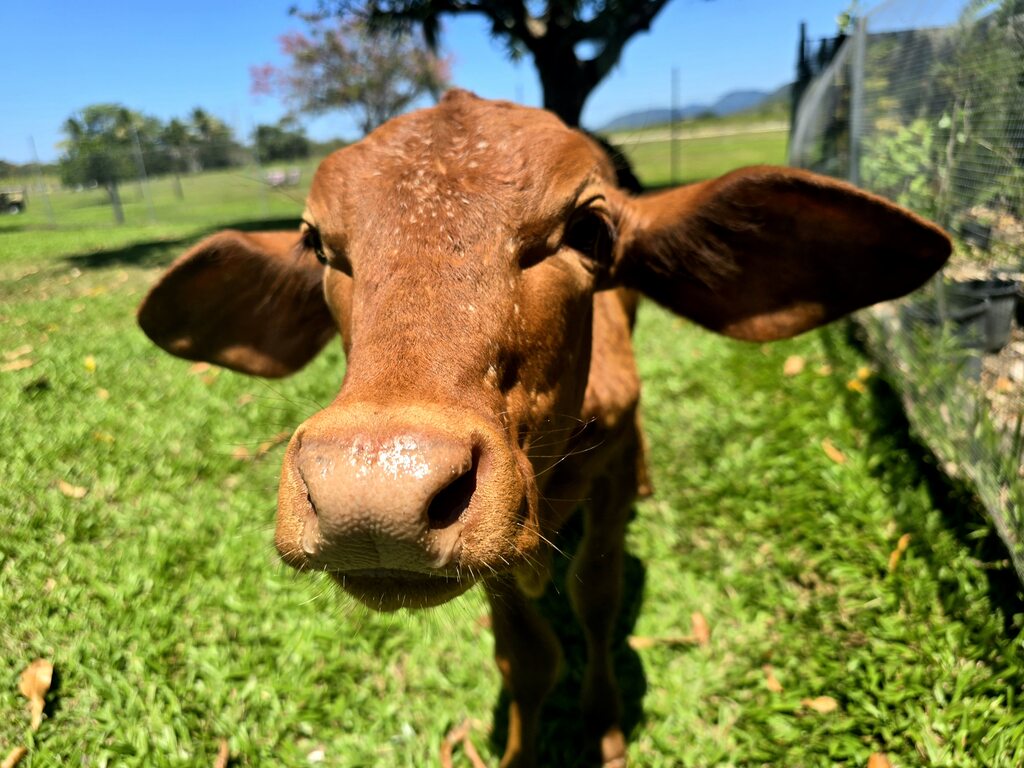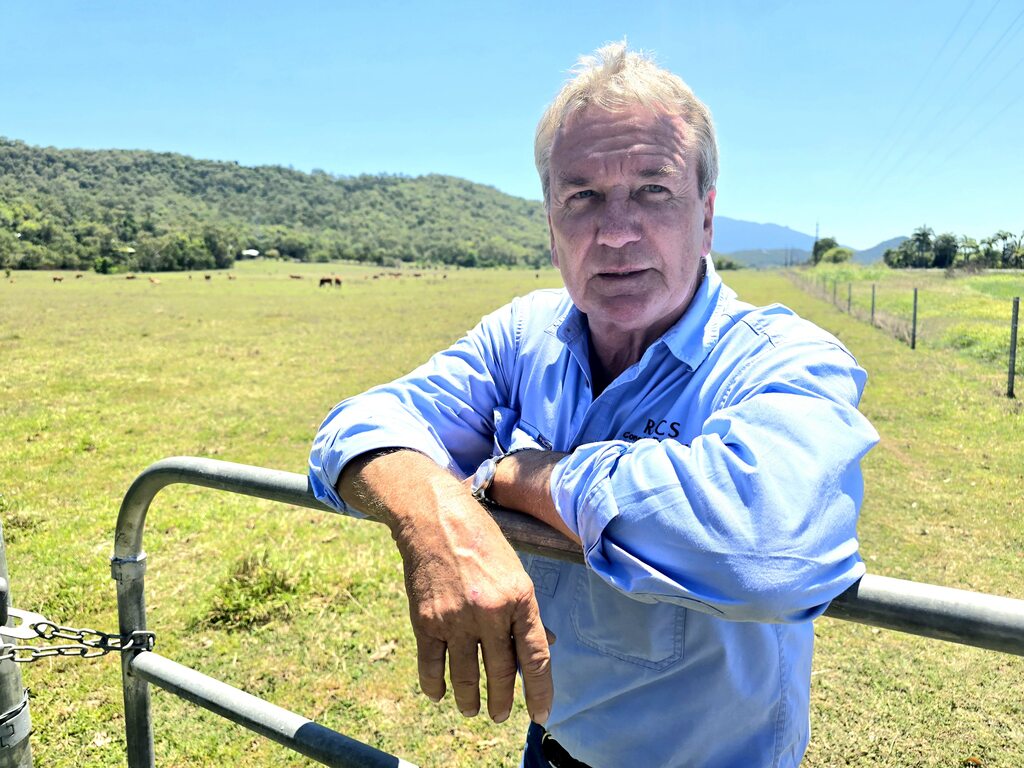
Wild dogs close in on Douglas cattle
Dingos Kill Cattle

Young cattle in the Douglas Shire region are under threat of dingo attack, farmer Peter Dutallis losing two calves in recent weeks, including one which would have taken a pack of wild dogs to bring down.
Running a herd of around 40 calving Droughtmaster and Brangus cross cattle on around 100 acres between Port Douglas and Mossman, Mr Dutallis suggests the dog attacks are his biggest farming challenge, adding to the stresses of fluctuating markets and the threat of flooding rainfall.

“The feed is not too bad. We had a tremendous amount of rain in December…two inches an hour for 30 hours and this was basically just slop and water,’’ said the long-term beef grower who started farming in the region two years ago.
“You have to keep the cows up the top paddocks through that.’’
Now, two deaths from dog attacks has Mr Dutallis and Douglas Shire biosecurity professionals working on a management plan to lessen the impact of dingos.
“Dogs are coming in from the north and the west, following the creek lines down we think or just jumping across the road through the old cane paddock,’’ Mr Dutallis said.
“I haven’t seen them attacking but, talking to the Douglas Shire biosecurity boys who are onside and coming up with a management plan, they seem think they will be a dingo or dingo cross because they are killing from the back.
“We did see them quite regularly… when the paddocks were full of cane and the cane was cut we would see them running across the back within 100m of the yards.
“Talking to the neighbours along Ocean View Road, they’re now coming down here about 2 or 3am and they are upsetting the dogs at the back of their properties… that’s how they know something is going on.’’
Mr Dutallis said one of the calves lost to dog attack was a newborn and one was a weaner about three or four months of age.
“When (dingoes) are in a pack, two or three of them will distract the mums,’’ he said.
“The droughtmasters are very maternal and they’ll pack up around the calves and fight off the dogs. But if they can get a calf out by themselves, two or three will entertain the mob and then they’ll pick off the calf.’’
The local reports of dog attacks come as the Miles Government announced its support for land managers in their efforts to protect livestock in western Queensland with more than 1,500km of cluster fencing by the end of the year.
Round 5 of the Queensland Feral Pest Initiative has helped to protect prime grazing country from wild dogs and feral pests.
Five western Queensland regional councils, the Remote Area Planning Development Board (RAPAD) and land managers have been working together to construct the fencing in areas of high wild dog density.
The cluster fences are expected to deliver substantial economic and environmental benefits, helping western Queensland’s livestock industry to control feral pest populations and boost regional employment.
Minister for Agricultural Industry Development and Fisheries and Minister for Rural Communities Mark Furner said through the Queensland Feral Pest Initiative, the Miles Government has now committed almost $30 million to regional communities across the state for the construction of cluster fencing in areas with high wild dog populations.
“A recent milestone includes the completion of a 115.5 km fence in prime sheep grazing country north-east of Cunnamulla, covering 80,000 hectares of grazing land,’’ he said.
Support public interest journalism
Help us to continue covering local stories that matter. Please consider supporting below.
